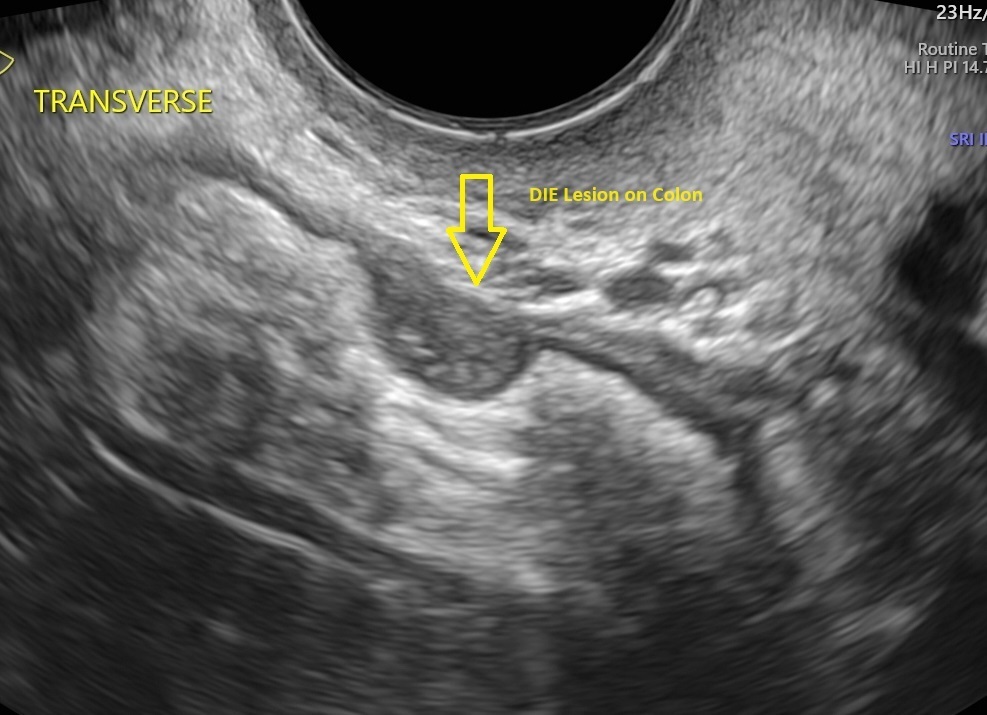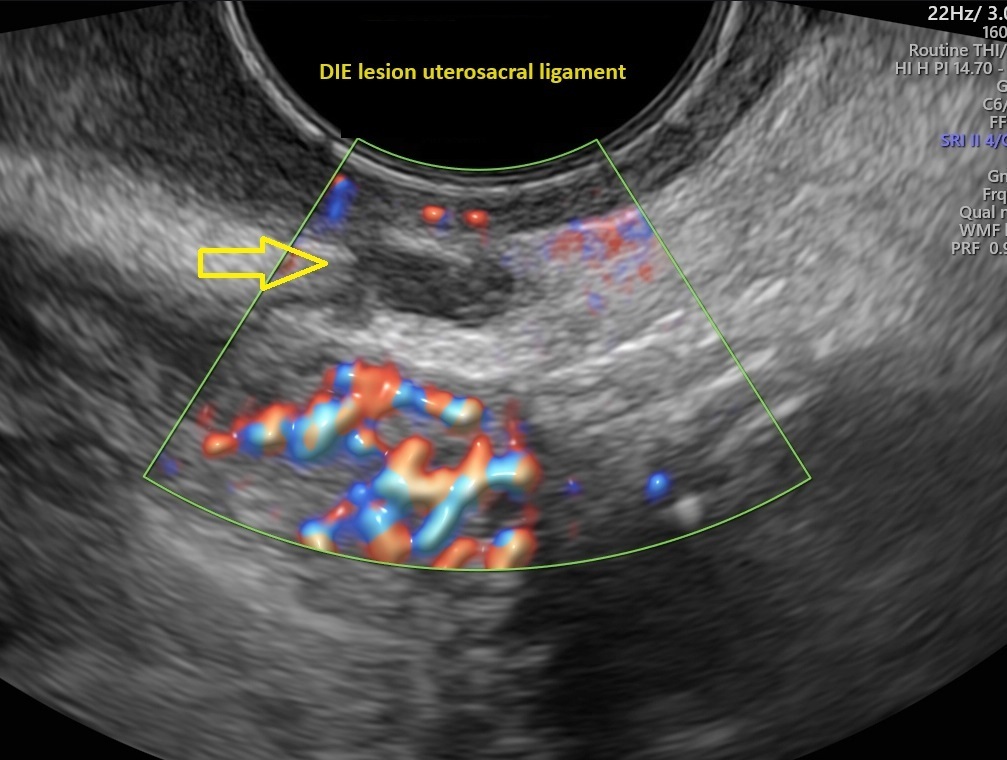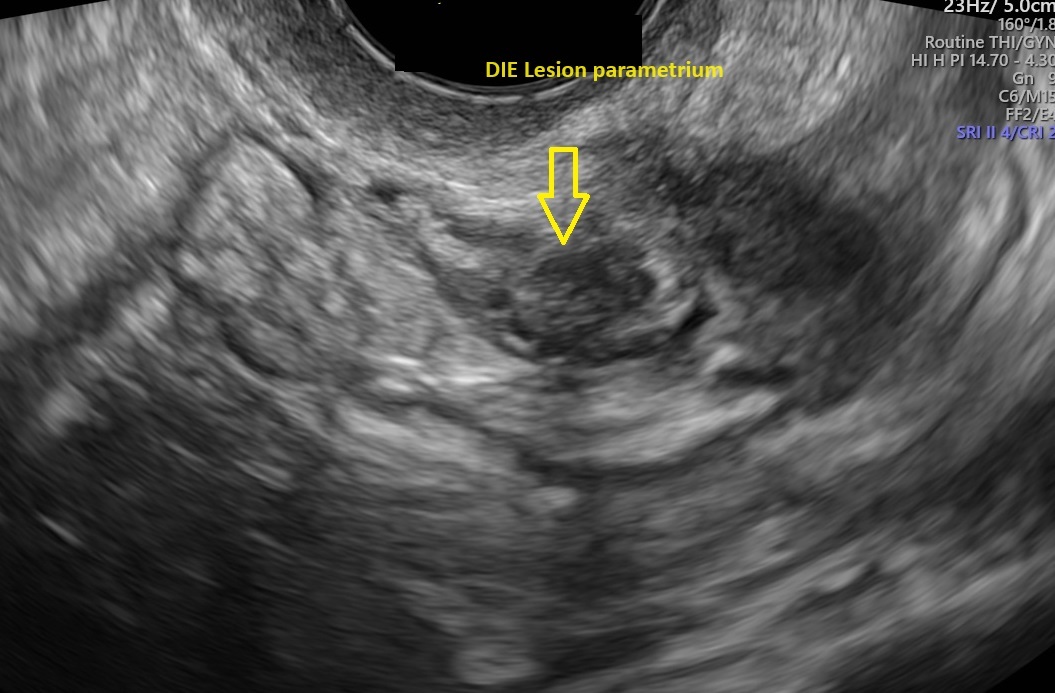
Endometriosis is a common medical condition that affects about 10% of women. Endometriosis occurs when endometrial tissue grows outside of the uterus causing periods to be extremely painful. It can also lead to cysts called endometriomas, chronic pain and possibly infertility. The majority of cases involve endometrial tissue implanting on the surface of the pelvic tissues or in the ovaries. These are called Superficial Lesions.
Deep Infiltrating Endometriosis is when endometrial tissue infiltrates the bowel, bladder, ureters, cervix, pelvic ligaments or vaginal wall, causing adhesions and obstruction in the pelvis and may or may not cause symptoms. Identification of deep infiltrative lesions is critical for proper surgical planning and management of care.

Identifying deep infiltrative lesions is critical for proper surgical planning and management of care. A typical pelvic ultrasound is effective for detecting ovarian endometriomas but can easily overlook sites of deep infiltrating endometriosis. This type of lesion usually requires expensive imaging tests such as MRI. But now, with the precision of a Deep Infiltrating Endometriosis Ultrasound Scan, structures that lie deep in the pelvis can be evaluated for the presence of infiltrating lesions. This includes the uterine ligaments, adjacent connective tissue, rectum, vaginal wall, cervix, ureters and bladder wall. A graded assessment of organ mobility is also performed to evaluate for possible adhesions.
